USDA
Latest
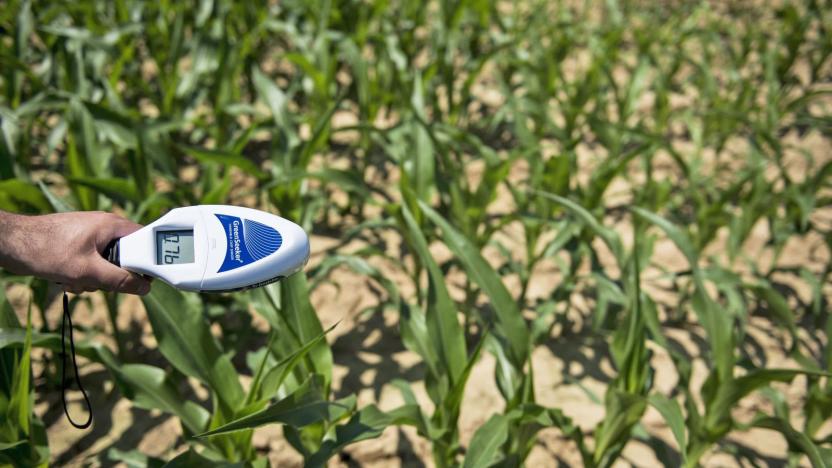
FCC task force will help connect farms and ranches
Today, the FCC announced a task force meant to support the deployment of broadband across unserved farms and ranches. The Precision Ag Connectivity Task Force will work with the US Department of Agriculture and public and private sector stakeholders. It will be responsible for developing policy recommendations for rural, agriculture-focussed broadband. "As I've traveled the country, I've seen the amazing efficiencies, innovations, and improvements that high-speed Internet brings to today's farms and ranches," said FCC Chairman Ajit Pai. " ... This is the present and the future of American agriculture, and we must do whatever we can to support these producers and enhance precision agriculture."
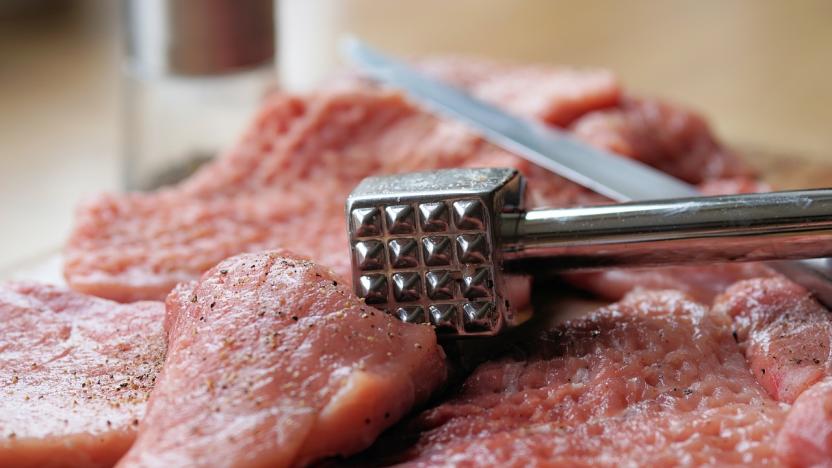
FDA and USDA will meet to debate the future of lab-grown meat
It's inevitable that lab-grown meat will play some kind of role in the future of food supply, but at this stage, it's unclear how much of a role, or what its regulatory frameworks will look like. This is why the US Food and Drug Administration (FDA) and US Department of Agriculture (USDA) are hosting a joint public meeting on the issue, to address public concerns about cell-cultured meat products and to examine how they will fit into existing food systems.
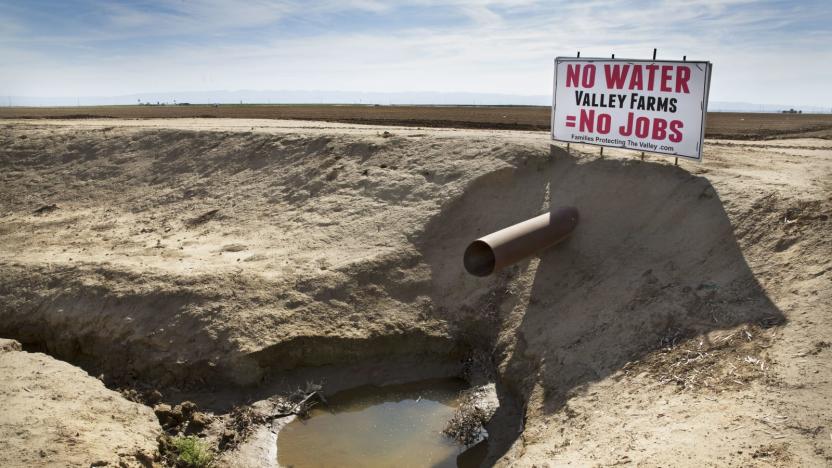
US agriculture agency tells staff not to mention climate change
It's no secret that the Trump White House is no fan of climate change science, but that's been having more of a chilling effect than you might think. The Guardian has obtained emails showing that the US Department of Agriculture's farm conservation division, the Natural Resources Conservation Service, has been telling staff to avoid using language that directly references climate change. Instead of "climate change," workers are told to refer to "weather extremes;" instead of talking about how the country can "reduce greenhouse gases," they're asked to talk about "build[ing] soil organic matter."

The Engadget Podcast Ep 26: The Sounds of Science
Managing editor Dana Wollman and senior editor Nathan Ingraham join host Terrence O'Brien on the latest episode. First Dana and Nathan face off in the latest installment of Flame Wars, tackling the latest news around Google Voice, struggling streaming service Tidal and the Note 7. Then all three will try to unravel the first week of Donald Trump's presidency and what it means for science in particular.

Agriculture Department lifts USDA gag order after public outcry
That didn't last long. Less than a day after the US Department of Agriculture issued an internal memo dictating that its main research division "not release any public-facing documents" the agency has rescinded that order, according to emails obtained by Buzzfeed.
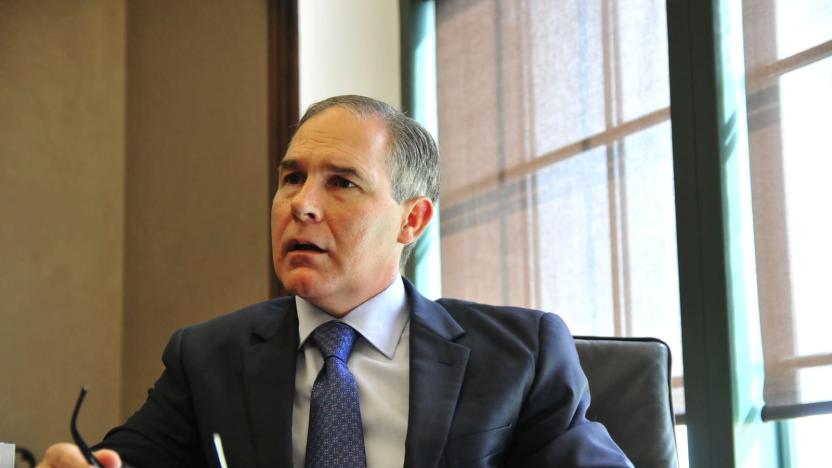
Trump administration freezes grants and contracts at the EPA (updated)
Donald Trump's administration has frozen all grants and contract operations at the Environmental Protection Agency, ProPublica reports. The freeze could disrupt critical, ongoing projects such as toxic cleanups and water quality testing, and it may impact the EPA's budget allocations. The EPA currently has $6.4 billion worth of federal contracts, which it uses to organize clean-up and testing services across the country. It's unclear how long the freeze will be in place or whether it will impact only new grants.
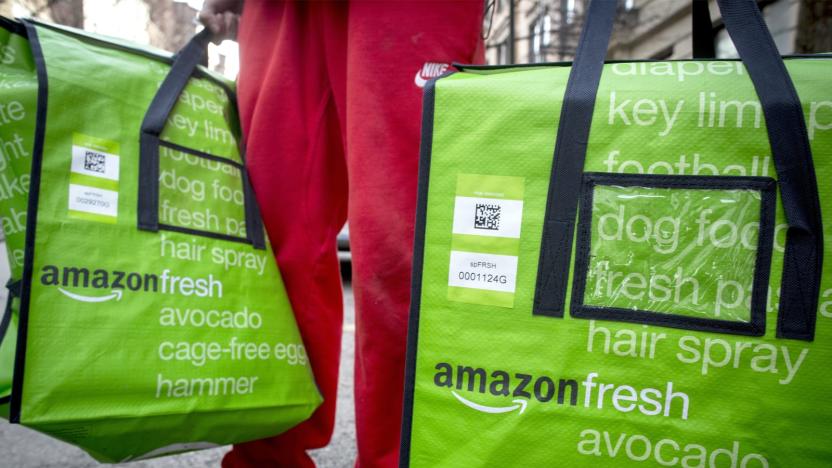
Amazon and online grocery services will soon accept food stamps
Thanks to a pilot program from the U.S. Department of Agriculture, families who rely on the Supplemental Nutritional Assistance Program (SNAP) to buy groceries will soon be able to use online services like Amazon and FreshDirect. When the two-year program goes live this summer, it has the potential to improve access to healthy food choices in communities that are often lacking in options.

ICYMI: The USDA created milk-based cling wrap
try{document.getElementById("aol-cms-player-1").style.display="none";}catch(e){}Today on In Case You Missed It: MIT's Self Assembly Lab came up with a phone that can be put in something that looks like your old rock tumbler and snap together by itself, with the force of magnets. And scientists at the US Department of Agriculture created food packaging clingwrap made of milk protein that's both biodegradable and edible. We wanted you to see the bagpiping Charmander and also the Indiegogo project with a tiny bear. As always, please share any interesting tech or science videos you find by using the #ICYMI hashtag on Twitter for @mskerryd.

Genetically modified mushrooms cleared by the USDA
While the ethical debate rages on about genetically modified human embryos, the United States Department of Agriculture has cleared its first CRISPR-modified organism. CRISPR, in case you've forgotten, is an editing technique that can alter the genome of almost any organism pretty easily. Penn State University's agriculture department used the method on white button mushrooms to include an anti-browning phenotype that reduced the polyphenol oxidase enzyme (turns produce brown when exposed to air) down to about 70 percent effectiveness. Popular Science notes that because CRISPR doesn't use bacteria or viruses to affect the DNA like previous methods have, these 'shrooms aren't considered "plant pests."

White House says broadband is a 'Core Utility' just like power and water
Think you could survive in this day and age without access to a broadband connection? The White House has its doubts. A recent report from the Broadband Opportunity Council (under the auspices of the Oval Office) described broadband connectivity as an "essential infrastructure for communities" that "has steadily shifted from an optional amenity to a core utility" on par with water, electricity and sewers. According to the report, which was headed by the chairs of the US departments of Agriculture and Commerce, 51 million Americans lack access to download speeds beyond 25 Mbps. That's roughly a sixth of the national population.

US Government offers up $103 million for rural broadband expansion
The US Department of Agriculture announced this week that it will make available more that $103 million aimed at bringing broadband to areas of the US with little or no access to the technology. The money will go toward 23 projects in areas including parts of Oklahoma damaged by a recent tornado and a mountainous region in Northern California, which will provide internet access to native tribes. For the full list of recipients, check the source link below.

BlackBerry finally sees competition within US government
Despite our commander-in-chief's seemingly undying allegiance to BlackBerry, it looks like the federal government could be ready to make a break from RIM. According to a Washington Post article published yesterday, a number of agencies within the federal government are questioning their attachment to the standard-issue BlackBerry devices, and allowing government employees to bring in their own preferred methods of communication -- among other things, Congress now allows the use of iPads and iPhones on the House floor and use of BlackBerrys at the Pacific Northwest National Laboratory has dropped from 1,000 to 700 in the past year. What's more, the General Services Administration is currently shifting 17,000 employees to Gmail, a move it says could reduce expenses by 50 percent in the next five years. Likewise, the USDA will also move its email services to the cloud with Microsoft's services, claiming $6 million in annual savings. Now, we doubt Obama's going to turn a blind eye to RIM entirely, but he has been getting awfully cozy with that iPad.

Dell to trial mushroom-based packaging on servers, hugs IT hippies
We've already seen Dell embracing the bamboo woods to package its products, so what's next for Round Rock's green fingers? Mushrooms, apparently. Unveiled at the Fortune Brainstorm Green conference yesterday is a biodegradable cushioning tray, which is grown -- yes, grown -- out of a mold stuffed with old cotton hulls, mushroom spawn, and nutritious agricultural waste. While it does take about five to ten days for the mycelium (aka mushroom root) to form the desired shape, the merit of such process is that all the energy required for the manufacture is provided by the recycled waste, thus reducing other energy dependencies. What's more, this fungal packaging has already passed Dell's extensive lab tests "like a champ," and it'll soon be trialed on Multipack packaging shipments for the PowerEdge R710 servers. If you want to thank Michael, he'll be in his usual tree house.

Ear-A-Round headsets keep tabs on cows, make farming easier
In no way are we insinuating that farming is ever "easy," but a new headset designed for cows could make cattle herding a much less stressful experience. The Ear-A-Round headsets are the product of a project involving the USDA and MIT, and essentially, the GPS-infused devices would transmit stereo sounds directly in a bovine's ears in order to guide and direct his / her movements. Strange though the head-worn gizmos may look, the built-in solar panel should keep it juiced up and ready to dictate on command, giving farmers the ability to track and herd from the comfort of their computer desks. The overriding goal here is to "improve animal distribution on the landscape," though we can think of quite a few other positives to having such a robust virtual fencing system.[Via Core77]











